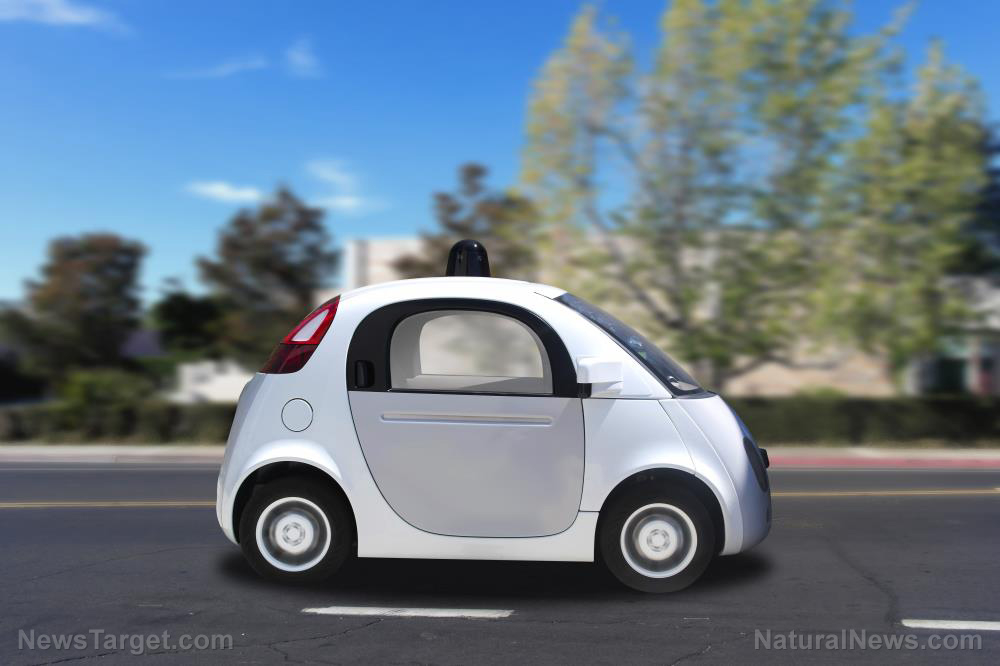A future dominated by electric vehicles is a slow, inefficient future that tortures the planet and the people
07/25/2019 / By Lance D Johnson

According to the New Green Deal, electric cars are the future and they will soon replace gas-powered, combustion engines. This “green” technology supposedly produces “zero greenhouse gas emissions” and will help save the world from the throes of climate change.
This sales pitch, adopted by Democrats in the 2020 election cycle, couldn’t be further from the truth. Diesel engines are more environmentally friendly than electric vehicles. According to an ecological assessment from the IFO Institute in Germany, electric cars have a worse carbon footprint when considering how they are manufactured and how much energy is pulled from the grid in order to keep them charged up. Tremendous amounts of energy are needed to extract the lithium, cobalt and manganese that are needed to produce the batteries for electric cars. This process alone requires 11 to 15 tons of CO2 just to make one Tesla model 3 battery.
Slow charging electric vehicles are inefficient, put the electric grid at risk, and cause more emissions than diesel engines
Notwithstanding, in order to keep electric vehicles charged, energy is pulled from the grid mix, requiring more coal, more gas, and consequentially more CO2 emissions. Even though electric cars do not cause emissions directly from the vehicle, they do require 180 grams of CO2 per kilometer when battery manufacturing and recharge requirements are considered. According to the German researchers, this causes up to 28 percent more pollution than a diesel engine. The German researchers believe that vehicles powered by hydrogen or combustion engines using “green” methane offer more advantages for the environment, allowing for peaks in surplus wind and solar power to be stored to boost the sustainability of clean energy over the long term.
In order to sustain the benefits of clean energy long-term, every country should look to diversify the sources of their energy consumption, or else they could be forced to depend on other countries, straining resources globally, while threatening the long-term necessity, value, and growth of clean energy sources. This fact of life is ignored by proponents of ambitious (reckless) socialist programs such as the Green New Deal. Programs like these handcuff progress in the marketplace, giving more economic control to oligarchs while putting a cap on environmental progress. There are cleaner, more efficient technologies than electric vehicles. Mandates for “green” technology use subsidies, backed by taxpayer dollars, to control the market and pass on gains to greedy investors.
In America, environmental progress can only occur through economic opportunity, not economic sabotage. Market innovation, driven by open dialogue communication, should be prioritized over one-size-fits-all mandates. Protecting diversity in energy generation should take precedence over unstable environmental dictates and the crony capitalism that ensues. Environmental regulation should hold companies accountable to the law, but should not cause rationing of resources so only the wealthy and well-connected can enjoy them.
After all, a future dominated by electric vehicles is a slow, inefficient future that tortures the planet and the people. While advances in clean energy are great for the planet, commercial flights, big engines, and fast cars will always have a place in America!
Who wants to be stuck in traffic, waiting on puny electric cars that rely on batteries that go dead? Where do all the junk batteries go when they are used up? How will the power grid hold up in a country dominated by fleets of slow-charging batteries?

Image credit: TheBurningPlatform.com
Sources include:
Tagged Under: batteries, battery manufacturing, Clean Energy, combustion engines, electric cars, electric grid, electric vehicles, electricity, Emissions, environment, green energy, green living, power, power grid, renewable energy
RECENT NEWS & ARTICLES
COPYRIGHT © 2017 FUTURETECH.NEWS
All content posted on this site is protected under Free Speech. FutureTech.news is not responsible for content written by contributing authors. The information on this site is provided for educational and entertainment purposes only. It is not intended as a substitute for professional advice of any kind. FutureTech.news assumes no responsibility for the use or misuse of this material. All trademarks, registered trademarks and service marks mentioned on this site are the property of their respective owners.


















